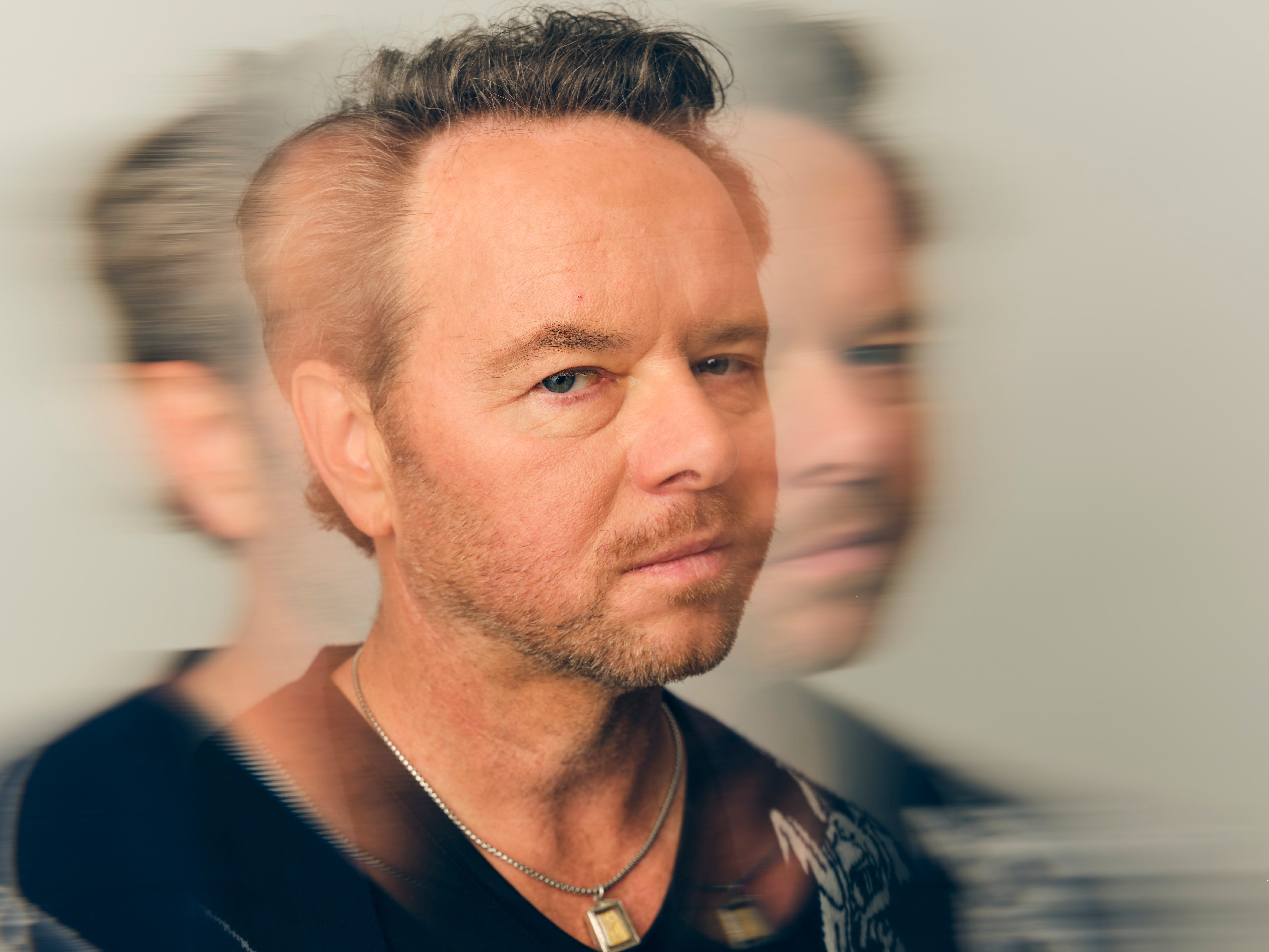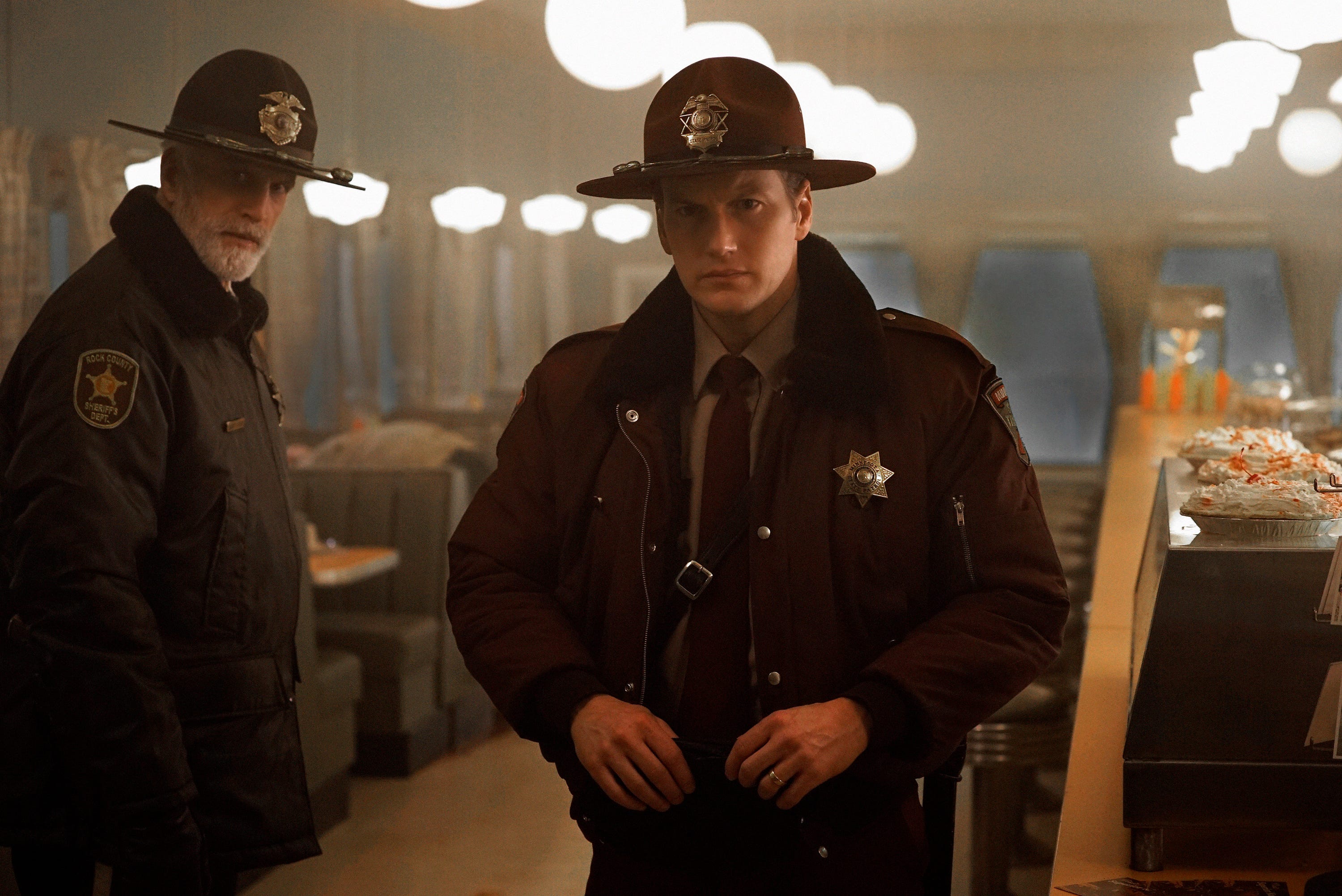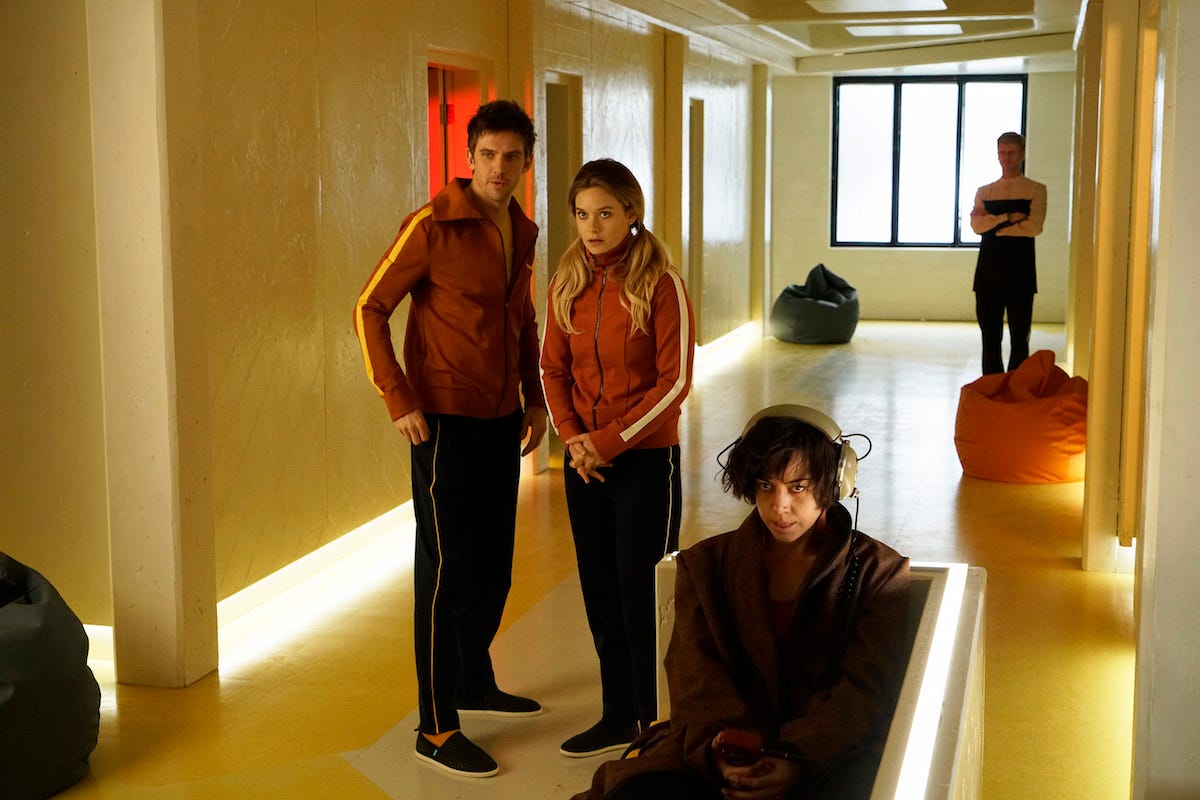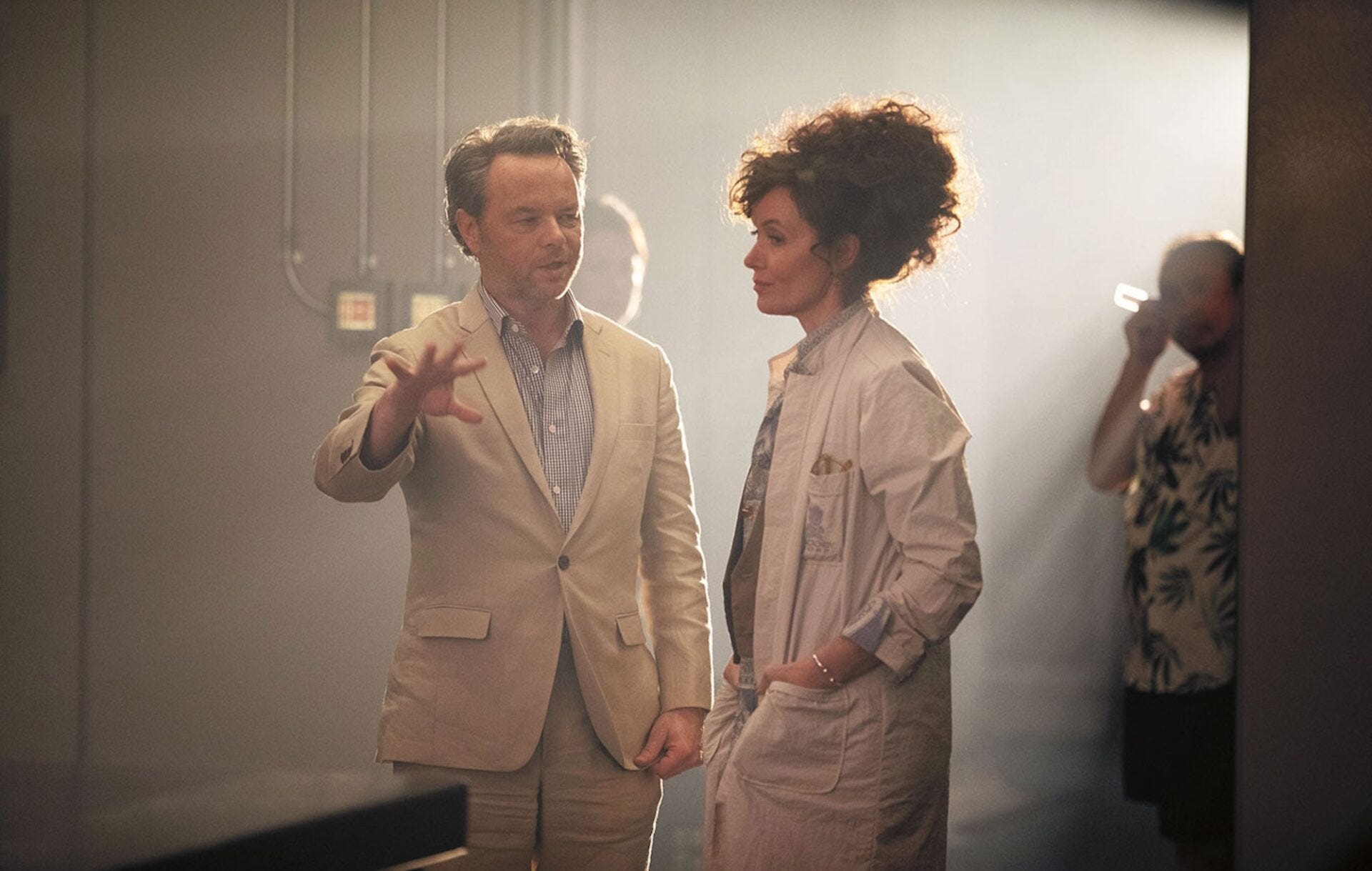
Maarten De Boer/Getty Images
As a young literary novelist, there was nothing that irked Noah Hawley more than stories that relied on plot. He didn’t need elaborate story engines like plane crashes or vast conspiracies to fuel his characters and sell books, he thought.
That thinking lasted only until he ended up writing a book whose plot featured both.
“I thought, ‘This is so much harder than just writing a literary novel,'” Hawley recalled to Business Insider. He meant “harder” as a compliment.
In the ensuing decades, Hawley, now 58, transitioned from novels to screenwriting and has become one of the most respected TV auteurs in Hollywood. He’s done it by leaning into the challenge of making thoughtful yet commercially appealing art, with one deceptively difficult task as his signature move: adapting beloved IP into hit television series.
Hawley started by pulling off the unthinkable in 2014, when he adapted the Coen brothers’ 1996 masterpiece “Fargo” into a multi-season noir anthology series on FX, to the tune of five seasons and seven Emmy wins. In 2017, he upped the ante with FX’s “Legion,” which ran for three seasons and earned critical acclaim for nipping at the edges of the X-Men universe while telling a story that delighted fans of superheroes and surrealist prestige TV alike.
Now, once again on FX, Hawley is attempting his biggest swing yet: “Alien: Earth,” the first-ever TV show in the “Alien” franchise.

Chris Large/FX
Beloved IP, original ideas
Turning movies into television is far from a new concept — Robert Altman’s acclaimed 1970 dark comedy “M*A*S*H*” was made into an equally landmark TV show back in 1972 — and modern-day Hollywood’s attempts to milk hit movies into ancillary projects are endless. (Think: all those TV shows made in the “Star Wars” and Marvel universes).
But in a sea of IP, Hawley’s work transcends the two-letter label, achieving the rare feat of honoring its source material while making a standalone artistic statement. Call him the franchise whisperer.
When presented with that title, Hawley seems amused. “I don’t carry a lot of fear with me in this endeavor,” he said a day after the show’s August premiere, still on a high from the show’s positive reception, which includes a 95% average on Rotten Tomatoes. “Maybe the reason I’m able to do this is because I like the creative risk.”

Patrick Brown/FX
Like “Fargo” and “Legion” before it, “Alien: Earth” works because it’s more than fan service. The eight-episode series, which is set two years before the events of Ridley Scott’s “Alien” movie, centers around a conglomerate-funded spacecraft that crash-lands on Earth with some spooky specimens on board. A group of tactical soldiers — all of whom are children in synthetic adult bodies — led by Wendy (Sydney Chandler), are sent by a “Peter Pan”-obsessed trillionaire wiz kid (Samuel Blenkin) to investigate the aftermath.
It’s a complex premise that Hawley still can’t believe FX went for.
“It must have seemed weird conceptually to FX that I wanted to turn ‘Alien’ into a ‘Peter Pan’ story, but my hope is I made ‘Alien’ feel not just accessible to young people but somewhat vital,” Hawley said. “What shows are really out there wrestling with, ‘How do I become an adult?'”
The secret to his shows’ success, Hawley said, lies in a simple creative exercise: If you removed the biggest draw — in this case, the “Alien” of it all — would it still be watchable? He strives to ensure the answer is yes.
“I did it first on ‘Legion,’ which was a story about people with powers,” Hawley said. “The first thing I did was, ‘Let’s take the X-Men power out of it. What’s the show?’ It’s an exploration of mental illness, and this man who believes he has these powers. But the most dangerous thing about a mental illness is it convinces you you don’t have it,” he explained. “I thought that was a really interesting place for a story.”

Chris Large/FX
So what is “Alien: Earth” without the aliens?
“It’s a meditation on class warfare; it’s individuals against the nameless, faceless corporation,” Hawley added. “Except in our current moment, we don’t have nameless, faceless corporations; we have Elon and Tim Cook, and we have Bezos, Zuckerberg, so you have to update it to be celebrity. But it’s still a question of how does the individual, in the face of all that money and power and their own expendability, how do they survive? Then you bring the creatures back into it.”
Writerly thought experiments aside, even Hawley couldn’t resist geeking out on his source material. Episode five, which he wrote and directed, is dedicated to the events leading up to the spacecraft’s crash-landing on Earth. Naturally, it was the perfect way to pay homage to Scott’s original 1979 film, from the chest-bursting birth of a Xenomorph, to the shaky camera work, to the sweaty crew members.
“I thought, if I’m going to do this show, I’m gonna make an ‘Alien’ movie in the middle of it, and I’m going to direct it,” Hawley said with a grin.
Forging his own path
And what about Sir Ridley? What does he think of “Alien: Earth”? Scott is an executive producer on the show, but Hawley said he hasn’t spoken to the legendary director in months. However, as it was with the Coens, who were largely uninvolved in the making of Hawley’s “Fargo,” he’s not looking for a pat on the back from the creators whose works he adapts.
“When I look at doing one of these franchises, for me, selfishly, it’s telling stories and themes that I am personally moved to explore,” Hawley said. “I use the franchise to tell original stories.”

FX
What franchise or original story might he want to explore next? Hawley wouldn’t name any specifics. So I gave him a suggestion: What about taking on “The Terminator”?
Despite several reboot attempts for the big screen and a forgettable 2008 TV show, James Cameron’s beloved franchise hasn’t been able to reach anywhere close to its high-water mark of 1991’s “Terminator 2: Judgement Day.” What would Hawley do with the franchise?
Off the top of his head, Hawley pinpoints the problem and how he’d attack it.
“The question becomes, what is in there in your mind that hasn’t been explored thematically?” he said. “You have got to get out of the character loop of, ‘Someone is sent back to protect someone.’ You can’t do that again unless you figure out a way to invert it or innovate.”
Hawley looks suddenly energized as he chips away at this creative hypothetical. With “Alien: Earth,” it’s clear he’s found his niche in this unpredictable business and enjoys the challenge of delivering on his promises. After all, it would be too easy to throw a Xenomorph on Earth and back away.
“It’s so much harder to make ‘Alien: Earth’ as a complex, layered morality tale about how children grow up, about how science leaps before it looks, and to do it as an entertainment with monsters,” Hawley said. “It’s so much harder than making an indie movie about people talking about those themes. So I choose to do the harder version of it.”
“Alien: Earth” episodes air Tuesdays at 8 p.m. on FX and stream on Hulu.
The post Hollywood loves to recycle old ideas. Noah Hawley will make them feel as good as new. appeared first on Business Insider.




